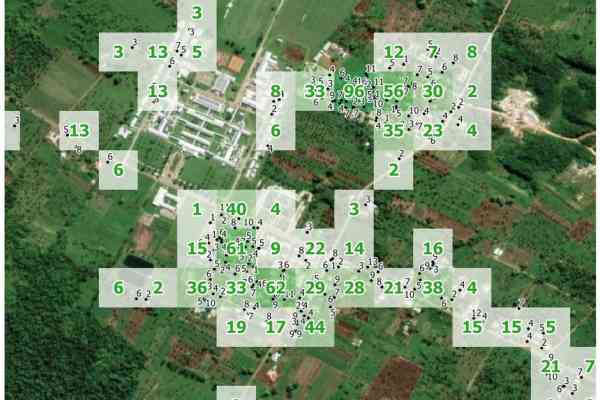(disponible en anglais uniquement)
New data shows significant declines in international trade in four Pacific Island countries
2020 will be remembered as the year the world experienced COVID-19, the first global pandemic of the modern era. The Pacific has not been spared, and although the number of cases has not reached certain levels known elsewhere in the world, many economic sectors of Pacific Island Countries have been deeply affected by the crisis.
This is the case of International Merchandise Trade, for which statistics covering the first 6 months of the year 2020 in Fiji, Samoa, Tonga and Tuvalu have become available. All four countries report declines in their trade in this period compared to the same period of 2019. Exports (including re-exports) declined in all four countries and imports declined in three.
Trade is expected to continue to be disrupted in the coming quarters as the economic impacts continue to accumulate across the Pacific region. Further declines in both imports and exports cannot be ruled out due to the COVID-19 crisis becoming protracted in trading partner countries.
Trade flows have been particularly impacted by the grounding of the aviation sector across the whole Pacific region. This has been one of the primary factors leading to the decline in imports and the subsequent re-export of mineral fuels for all four countries. Although data is not yet available, it is very likely that a similar pattern will be seen in other countries who rely on the aviation sector for trade, as well as tourism.
Across the region the production and export of fish has also been disrupted by the border closures and general lockdowns and this has contributed to the overall decline in exports in Fiji, Samoa and Tonga. Data in the coming quarters will shed more light on the performance of fish trade which is also dependant on the demand at the source markets. Border closures and the loss of tourism related revenues will continue to depress domestic expenditure and the demand for imports of consumer goods as unemployment increases and family incomes decrease.
Many Pacific countries rely on trade and/or consumption taxes for a significant proportion of national government revenues. Weaknesses in trade flows, both exports for foreign exchange earnings and imports for tax revenues will have serious implications for public finances and the ability of governments to maintain public services.
Below is the detailed data for Fiji, Samoa, Tonga and Tuvalu. More data and analysis of the economic impacts of the pandemic can be found at sdd.spc.int/disasters-data.
Trends in trade data will continue to be monitored and updates will be issued as new data emerges.
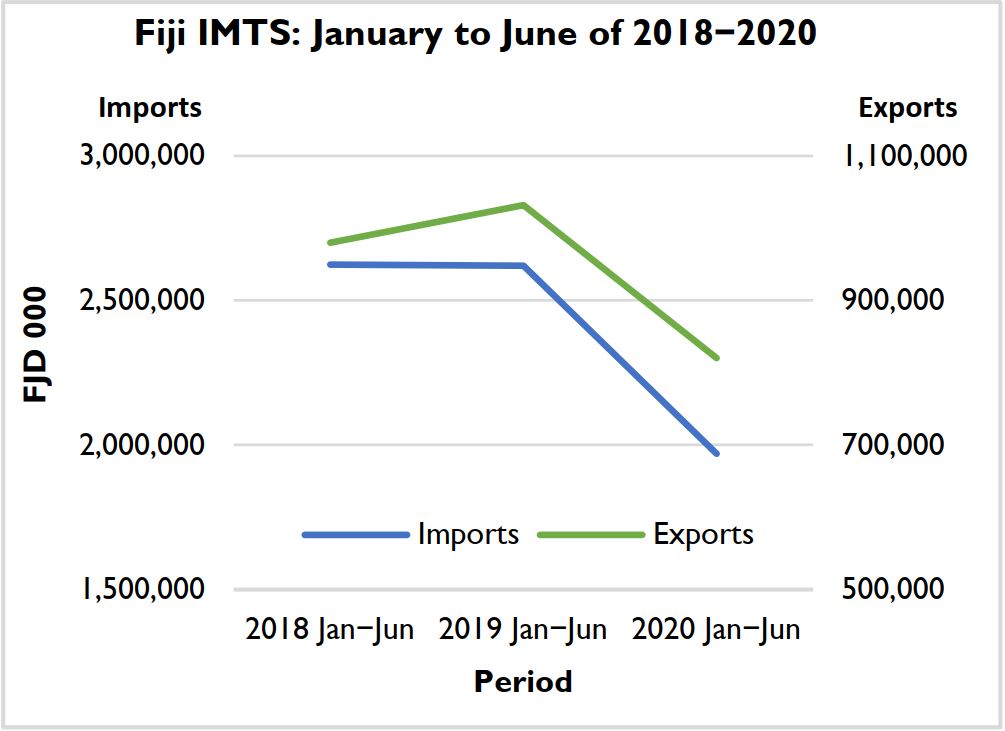
Fiji’s IMTS from January to June of 2020 compared with the same period in 2019 show total trade (imports plus exports) declining by 24 per cent, of which –
- Exports including re-exports declining by 20.5 per cent. Lower exports of fresh fish, mineral water, soft drinks and cement were the principal contributors to the overall decline; lower re-exports of mineral fuels as well as lower re-exports of machinery and transport equipment contributed to the decline in re-exports.
- Imports declining by 24.8 per cent. Contributing to the decline in imports were lower levels of mineral fuels, machinery and transport equipment.
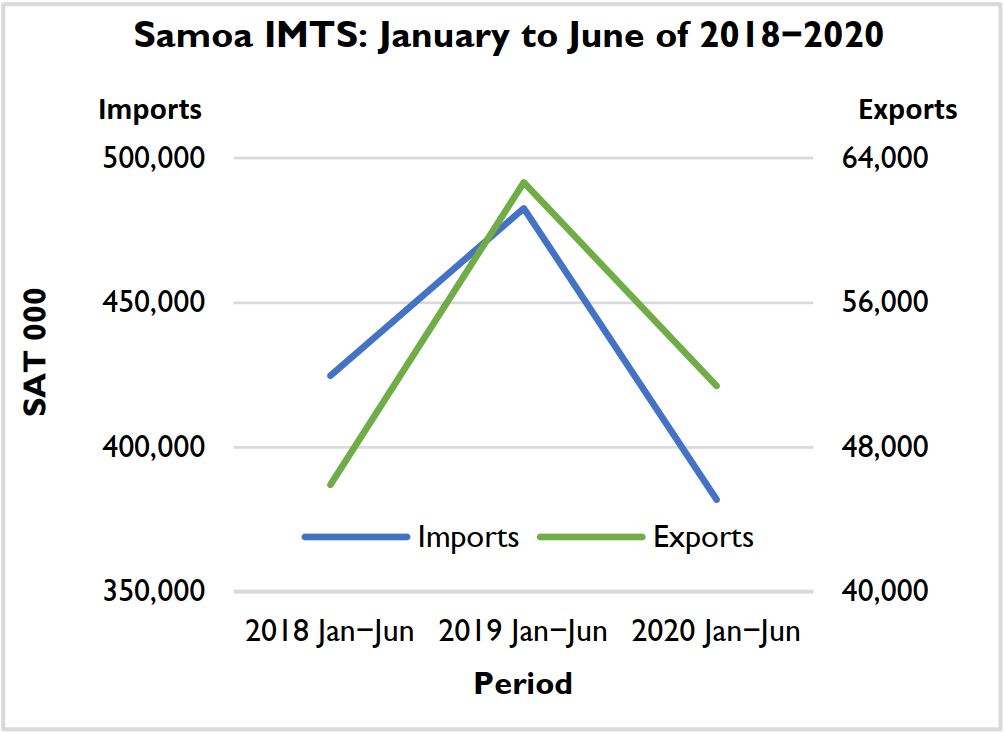
Samoa’s IMTS from January to June of 2020 compared with the same period in 2019 show total trade (imports plus exports) declining by 21 per cent, of which –
- Exports including re-exports declining by 18.0 per cent. Declines in fresh fish, fruit juices, beer, taro, coconut, coconut oil and ignition wiring sets were significant contributors to the decline; and lower demand for aviation fuel was the principal factor in the reduction of re-exports.
- Imports declining by 20.9 per cent. Contributing to the decline in imports were lower levels of mineral fuels, machinery and transport equipment.
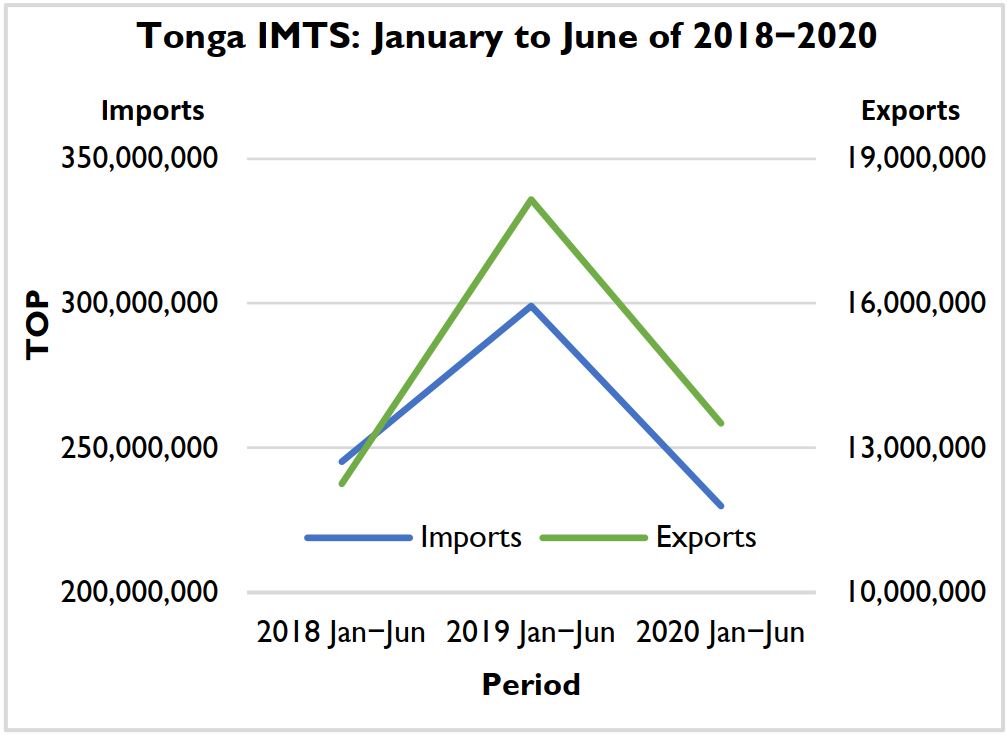
Tonga’s IMTS from January to June of 2020 compared with the same period in 2019 show total trade (imports plus exports) declining by 23 per cent, of which –
- Exports including re-exports declining by 28.3 per cent. Lower exports of fresh fish, root crops, and kava were the main contributors to the decline in exports; lower levels of mineral fuels, machinery and transport equipment contributed to the decline in re-exports.
- Imports declining by 24.8 per cent. Many commodities contributed to the decline in imports, of which the significant ones included vegetable products, prepared foodstuff and beverages, mineral fuels, machinery and equipment and vehicles.
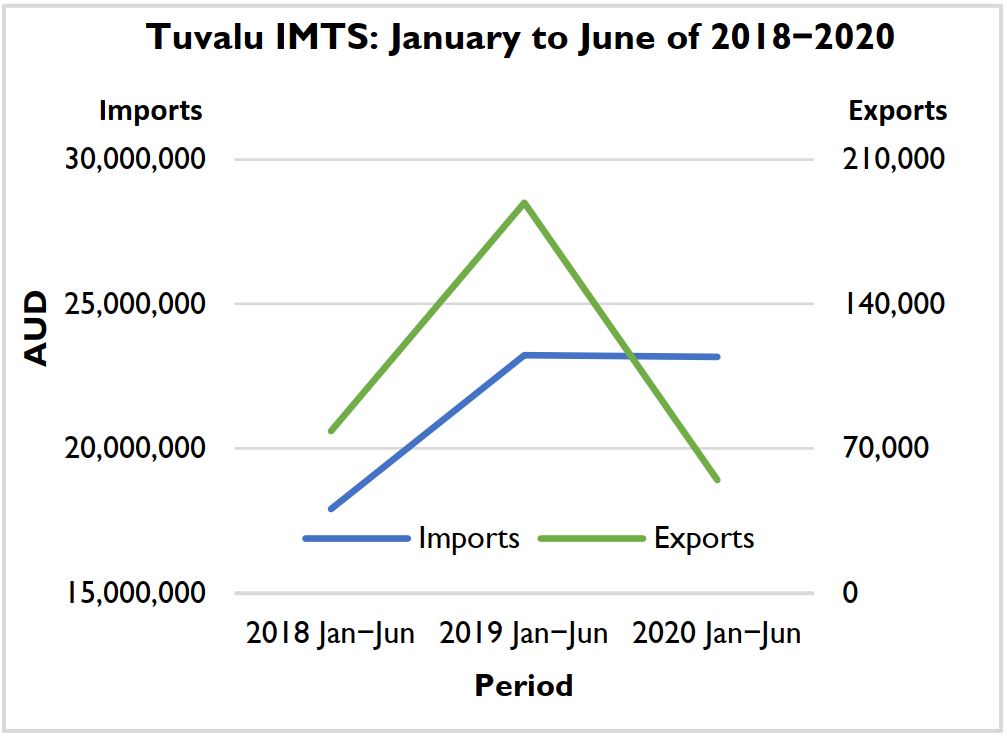
Tuvalu’s IMTS from January to June of 2020 compared with the same period in 2019 show total trade (imports plus exports) declining by 1 per cent, of which –
- Exports including re-exports declining by 71.0 per cent, primarily due to lower re-exports of mineral fuels.
- Imports levels were virtually unchanged between the two periods.

